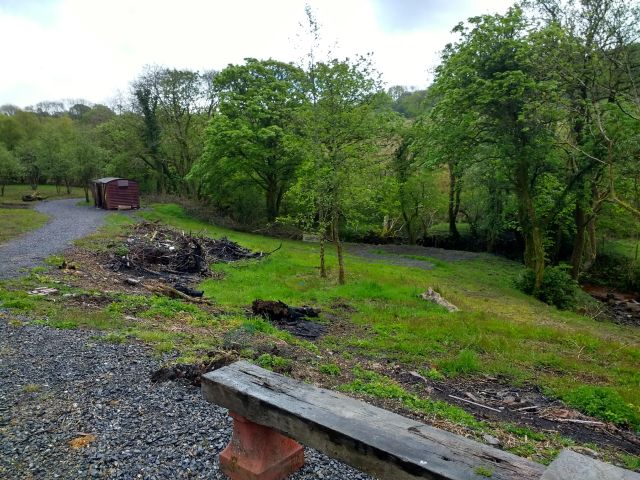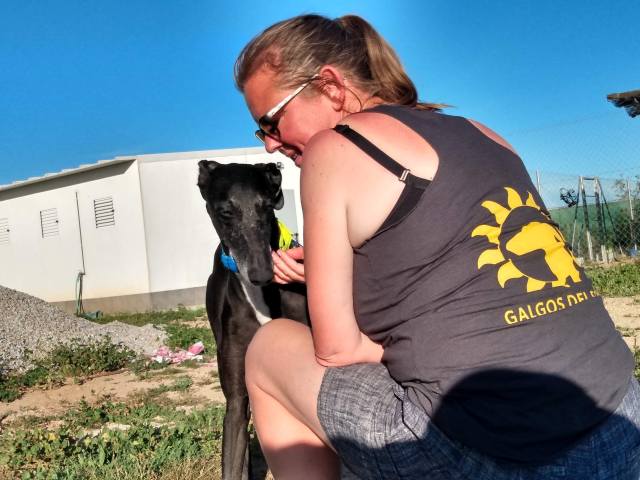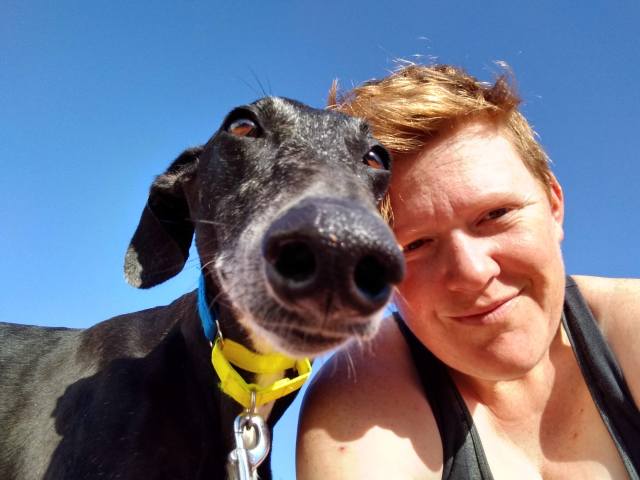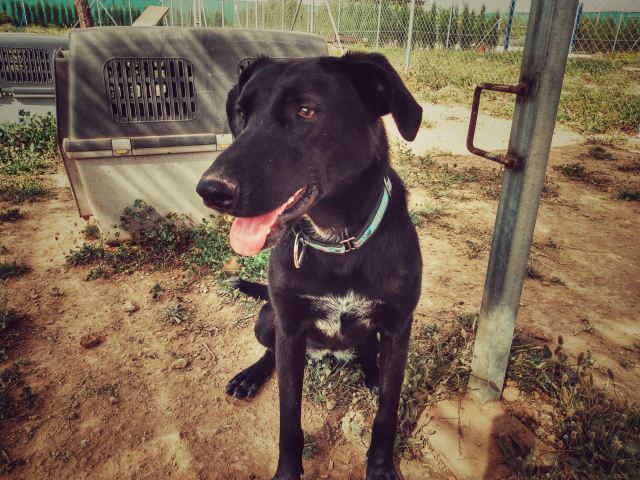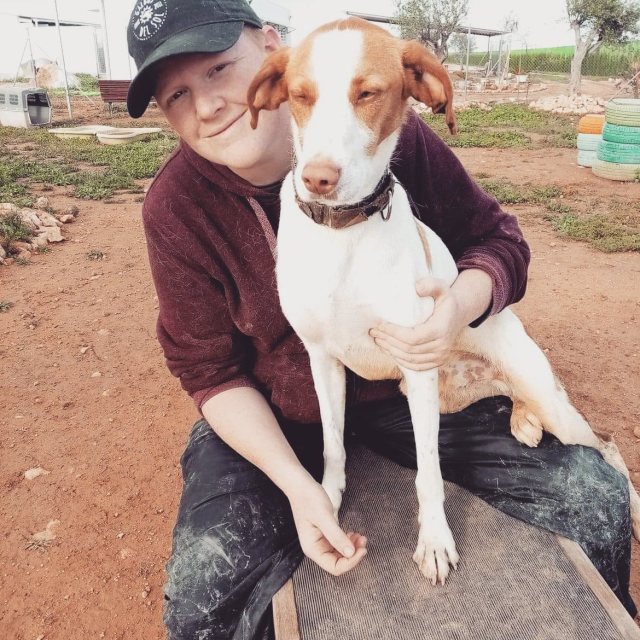Why you should consider a work exchange experience when you travel.
Travel has been important since the dawn of time. The explorers in us have always roamed this earth in search of new lands, experiences and views. Through all of it we love to learn about new places and cultures. For those of us not content with 2 weeks a year and who try to travel either full time or regularly, the costs can mount up. Looking for ways to save money when we travel is essential to make the most of our free time.
Why not consider a ‘travel work exchange’ programme?

What is a work travel exchange?
A work travel exchange is an amazing way to travel on a budget. You get to meet lots of people. You usually get to stay for free in exchange for some work that they need doing. This allows time for you to see the local area in your free time.
Travel/work exchange programmes have been around for many years. They have given those that love to travel the ability to move around for low costs. It is beneficial for businesses owners, private land owners, social projects, farms etc. to get assistance with an endless amount of roles. It’s a collaborative exchange between you and the hosts looking for a certain type of work to be done.
What type of work can I do?
You do not have to be trained in obscure roles such as ‘listed house roofing specialist’ or have a degree in landscape gardening. There are plenty of other roles available for almost every type of skill you can think of. However if you do have certain skills, particularly being able to speak foreign languages, it will certainly help you in some work travel placements. There are so many opportunities to learn on the job. The most important thing is to have an open mind and be willing to work hard.
Some roles could be helping out on campsites, in hospitality, fruit picking on a farm or helping to clear land. Teaching a language or subject, renovation and maintenance, cooking, child care, working in a rescue centre for animals. The list is endless and they are all across the globe. They are enticing you off of the beaten track into the more remote locations to get a real feel of the land and local communities.
What do I get in return for working?
In most cases accommodation is provided, sometimes a spot to park your campervan (sometimes there may be electric hook ups). All of this is relative to the individual location and host. It is important that you clarify all benefits before you travel to ensure you are prepared for what to expect. Occasionally they may be shared dorms and bunks similar to a hostel environment, if they are having regular volunteers. You may be lucky and have your own accommodation and bathroom or it may be shared with others.
In most cases we have found that one meal is usually provided communally. Cooking duties are usually shared amongst the volunteers so having some basic cooking skills will serve you well. Pun intended! If you are a really bad cook then perhaps agree to be the chief washer upper!
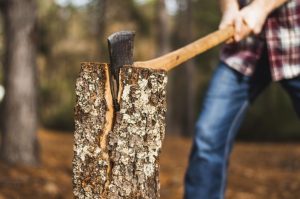
What don’t I get?
In most cases, do not expect to earn money. You are working for the host in return for your board. It is very unlikely that any wages will be included on top of that.
You will be responsible for your travel costs to and from the location. Any visas and vaccinations if you are going abroad, and medical costs will be your responsibility.
Food may be included for communal meals. All other food will need to be purchased by yourself as well as money for excursions and leisure activities.
Each work/travel exchange will be different depending on the host. You need to make sure you clarify all the fine details before you commit.
How long do I have to work for?
This will vary from host to host, however the usual amount is around 20 – 25 hours a week. We undertook a placement in an animal sanctuary and volunteered to do almost 12 hours days at times. In addition we also had night duty and were very happy to do those hours. I will stress that we didn’t have to and that the host was very accommodating to our needs. We loved it so much that we wanted to as much as we could.
What travel insurance do I need?
Due to the types of work you will be undertaking, there are some grey areas as to whether you are a worker or a tourist. In reality, you are neither and both at the same time. We did a quick search for volunteer travel insurance and found some information on gap insurance. This is catered for the younger age bracket taking their gap year between collage and university. Some of these insurance companies have a maximum age bracket as low as 35. We recommend speaking to insurance brokers and explaining the type of volunteering or work exchange placement you are undertaking to ensure you have the correct cover.
Any advice?
We suggest that for your first experience, consider starting in your home country. Once you feel confident then start to look further away. Perhaps arrange to go with a friend to have someone to travel with and share the adventure. Make sure people know exactly where you are and check in regularly. Provide your family with contact details of your host.
Where can I find out more.
There are lots of websites set up specifically for work travel exchange programmes, volunteering and working abroad. A quick internet search will bring them up for you. There are also lots of facebook groups set up for this. Connect with others that are looking to sign up for, or have experience in, travel work exchange programmes. Build a network of like-minded people. Start to make friends with them and ask them about the highs and lows of their involvement in the programmes.
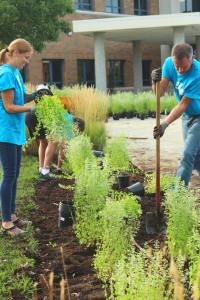
Our experience of Travel Work Exchanges.
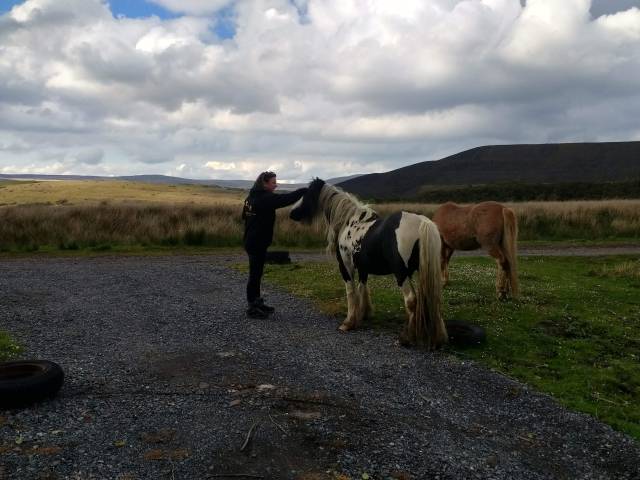
We have only done two so far but are looking at other experiences for the future. Our first one was in the UK and we found this on a facebook group for van-lifers. It wasn’t done through a specific website or company. We saw a post from an lady that had purchased some land. She was looking for people to help clear it and turn it into a campsite. The land was in Tairgwaith, Glamorgan, Wales. This is a part of the UK that we love near the Black Mountains. We were looking to give something back so volunteered to lend a few days helping out.
Speaking to the host a little bit about the types of things that were needed, it seemed like general weeding, tidying, maintenance etc. In return she would let us park our campervan on the land for free in exchange for the manual labour. We were looking forward to hearing about the business plans she had. Perhaps learn a little bit about what would be needed if we ever embarked on a project like that in the future.
We arrived at the location and were greeted by wild horses. The site was on a slight hill with a gravel path marking the small site, only catering for approximately 3 or 4 campers at a time. It wasn’t a large plot of land but it was beautiful. We met our host who was, shall we say, a unique character. After being given a tour of the site, she told us all about her exciting plans. We could quickly see that there was a LOT of work that would need to be done.
Groundwork
In order to get the most out of the time we had, the host set us to work on one area. Rather than just do bits here and there it made sense to concentrate on one area. During the time we worked there we managed to make a safe bonfire pit. We used this to burn small amounts of wood at a time. In the evening we also used this to cook our dinner on.
From moving big heavy branches, pulling weeds and moving rubble, the area took a fair amount of time to clear. We used rocks to line the edge of the path and discarded tree stumps as seats around the fire pit. The host would pop out every now and then to see how we were doing. She would remind us that we could stop when ever we wanted to but we were quite happy just pottering along and keeping the fire going.
Out for an adventure
On the second day, our host wanted to show us part of the local area. We all bundled in her yellow campervan and headed for the hills. She took us to a stunning part of the Black Mountain range to where there was a disused mine and lime kilns. It was lovely to go out with the owner and learn more about the surrounding area. After a little while she headed back to the van and told us to take our time investigating. We agreed to meet her and her dog back at the van when we were ready. This allowed us time to look at the views and poke about in the rocks, looking at the ruins.
Live Streaming
After our walk we headed back to the camp site and continued to potter around. The next day saw us doing something slightly different. A beautiful stream runs through the site at the bottom of the hill. It had been all snagged up with fallen branches during recent bad weather. The host had asked us if we would be happy to help her clear it. With my wellies on I gladly followed her down the bank into the freezing water. We walked along the trickling stream that was largely rocky and very slippery. The host and I cut some branches back and cleared the debris that could have posed a problem if left to build up over time.
We passed the branches up to Louise who stacked them to dry out. The whole site was like something out of a hobbit film. Down in the stream the whole site looked completely different. The purple flowers appearing on the banks looked like a spring carpet. Tracks from animals could be seen using the water as either crossing locations or for a water source. Further along, back on land, were the remains of an old cattle shed. Sadly it hasn’t survived but would have been a beautiful building in its day.
We thoroughly enjoyed this experience. Even though there were not facilities to shower, it didn’t stop us from enjoying our time. We were helping this semi wild and basic site get a head start before opening properly.
It was thanks to this experience that we were eager to have another go at a work travel exchange, this time in Spain!
Galgos Del Sol
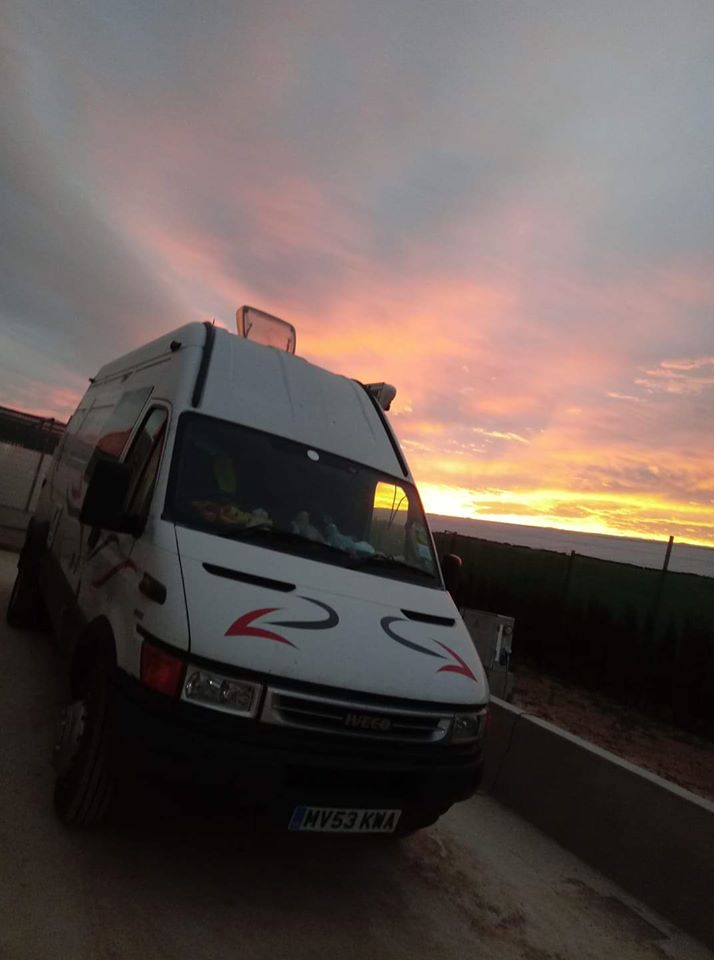
After our first season of travel, we settled up in Yorkshire for the winter. Being in a house just felt more restrictive and we needed to get out and about. We saw on another facebook group that an animal rescue charity was looking for people with a campervan. They wanted people to come and volunteer for a few months. This was to help do the night duty and care for the dogs. An interesting work travel exchange that was close to our hearts!
We love dogs, both having long careers in animal welfare under our belt, and we had a camper. Spain was warmer than Yorkshire and it was an area that we were sort of familiar with. A year prior we had stayed about an hour from there in my aunts villa. We loved it very much so we knew that should we have any major problems, there was an area (and possibly a villa if it wasn’t being used) nearby that we could find safety in.
Making the arrangements – even with the van rebuild not entirely finished, we made our way to the centre. On arrival, we were very impressed with the set up and facilities. This is a working canine rescue centre and it is still under some construction. Although most of the kennels are now built some work is still underway. Accommodation areas for volunteers and a communal shower facility for those camping are in the pipe line. We were able to use the shower in one of the finished apartments with permission from its current guest.
Agreement to volunteer
In the agreement we made with the hosts volunteer co-ordinator, we were given all the information we needed. This included hours we were expected to be available, safety information and site rules. It was clearly stated that there was a strict vegan policy in communal areas. You were allowed animal products in your own areas but not permitted in the communal kitchen or meals. Louise and I would be expected to work with the dogs 8am – 2pm then have lunch. The afternoons would be free time as long as we were back for evening duties. Duties would include being responsible for feeding, cleaning and training the dogs, caring for the guard dog at night and reporting any problems to the owner.
Louise and I were happy with these arrangements but it soon became clear there was a lot to do. We ended up working almost constantly, rarely taking any time off. We felt guilty on our occasional time off (due to covid, we couldn’t go anywhere anyway!) when we knew there was so much we could be doing.
For some of the longer term dogs, we would try to focus on enrichment ideas. This was to keep them stimulated and introduce new games and puzzles that they would need to figure out. We taught basic obedience, handling, touch acceptance, agility, lead work and settle. We loved them and played with them. After a snack we went to sleep and did it all again the next day.
Food Glorious Food!
Cooking is a passion for Louise and eating is a passion for me. This is one of the reasons we work so well together! Learning a whole heap of new recipes was a great joy. Being able to collaborate with other volunteers taught us a lot. We all took turns in the cooking and cleaning of the kitchen. At the busiest time, we were cooking for 13 people. That was until Covid hit and everyone had to leave, leaving just 4 full time and 2 part time helpers.
From aubergine parmesan, curried cauliflower and chick pea curry to vegan burger and chips. We had a real variety of food and everyday we would look forward to seeing what had been created. It was the one time of day that everyone could be together. We would discuss the plans for the next day or so. Through these experiences we made some really strong friendships that cover many countries and have remained in place even since we have returned.
Giving back
Fiji
Although we know we gave a lot to the dogs we cared for they also gave a lot back to us. They were our comfort, our security, our children and our friends. On one particular day I was feeling really tearful and frustrated so I went to sit with Fiji and calm down. She knew something was wrong and kept licking my face, practically sitting on me and forcing me to stay still until I felt better. Fiji is a heavy girl and if she sits on you, its hard to move her! We all loved Fiji and know that she will make an incredible therapy dog!
Nerina
The puppies needed us to be on top of our game. Constantly feeding them and picking up poo whilst nursing their mumma back to health as she was in such a poor condition was one of the most rewarding elements of our time there. Nerina, the mother, was very wary at first about strangers coming in and touching her puppies.
She didn’t have any milk so to start with her babies needed feeding until she was able to take over again. She had to quickly learn to trust us. We took it as slow as we could. Always wearing gowns and respecting her space. After a day or so it was clear that Nerina was happy we were helping out and used us coming in as an excuse to have some alone time away from the pups and stretch her legs. Once we were done she would come back and settle down with the pups, once again latching on and starting to feed from her.
Marie
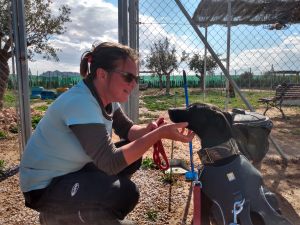
Some of the dogs needed a lot more socialisation than others and just spending time building bonds of trust were the most important sessions we would be involved in. It was a slow process with some of them but Marie, a dog who had spent almost her entire life at the rescue centre, was very scared of leaving her kennel. Louise and I spent lots of time slowly getting her to trust us and accept touch before we even tried to do any more than that. After a week or so we were able to start work putting the harness on – still not leaving the kennel.
Once the harness was able to be put on and off we started just going outside the gate. Marie had a favourite spot in the weeds just outside the block and we used this as her thinking spot. She felt safe there. Over time, and using lots of food bowls with high value treats in, Marie felt able to investigate the bowls and get a reward for doing so. During our time there we slowly moved the bowls further away, replacing them with vocal rewards and treats from the treat pouch. Now Marie can walk with other dogs and on her own, she is now kennelled with a friend and is enjoying playing in the large paddock.
Libby and Javi
As you know these two dogs became very close to our hearts. We spent a lot of time with these dogs and they gave so much back to us that kept us engaged with them. Javi has a broken back. He was hit by a car and when found, he had learnt to walk on his front two legs only. Sadly, Javi was paralysed from his hips down and his injury was inoperable. Tina, the director of GDS did not give up on him and was able to start him on hydrotherapy, electronic stimulation and physiotherapy.
Working with a dedicated team of vets and specialists, Javi began to make progress and can now walk again as his muscles are strong enough to hold him. Not only that, but he can play again almost like a normal dog. He still has the occasional wobble and certain weather may make him stiffer in the mornings but he was given a second chance to live and he has embraced it with both paws. Javi always looks happy, always has the biggest smiles and never complains about anything – other than that breakfast is always too late! He was a true inspiration to us both.
Libby is his best friend in the whole world and she look after him like a mother/son relationship. Libby has spent her life at GDS too and although her needs were very much looked after, she needed some Basic training to help give her the skills she would need in a home setting. We taught her to sit, to lay down, to wait and also a few tricks such as weaving, paw and using the agility equipment. She was a lovely dog who had so much enthusiasm for human interaction.
A shared experience
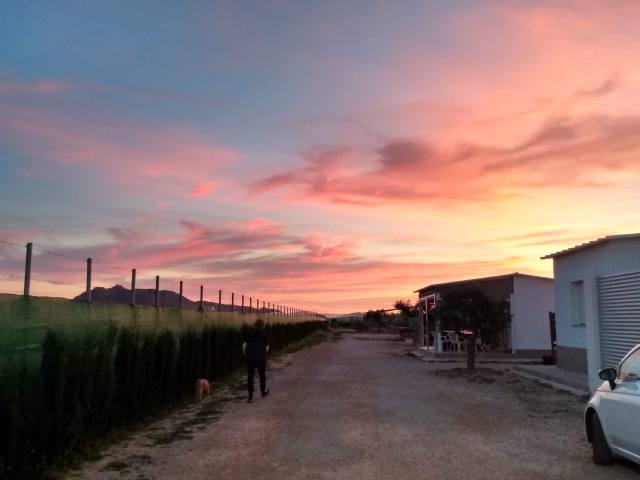
It is hard to sum up the experience of volunteering with GDS and the above are just a few examples of the different work we were doing with different dogs – however there were over 200 dogs on site and to tell you about each one would take some time. Lets just start by saying that we will never forget this experience and it taught us so much about ourselves, as well as about breeds of dogs that we had never worked with before.
We got to learn all about how front line rescue works, the effort it takes to rescue these beautiful dogs in the first place (countless hours sat waiting for these stray dogs to go in the humane traps to be captured, vet checks, medical bills, food and rehabilitation) before they can even be put up for adoption.
We learnt about volunteers from all over the world that came to help, including America, Belgium, Denmark and beyond. Connecting with other like minded volunteers and staff was incredible and easy as we all had a common interest in the well-being of these dogs, and therefore had a subject to talk about straight off the bat.
We also learnt a lot about ourselves, working under pressure in a foreign country in the middle of a pandemic – not knowing if we would be able to go home at any point soon and having to navigate another countries requirements with a significant language barrier proved quite entertaining at times.
Travel Work Exchange programmes
Travel Work Exchanges can leave an important mark on you, as we found out. They can help you grow your knowledge of people, places and skills as well as change you forever. You will meet people like you that like to travel and have common goals, adventurers, wonderers, hard working passionate people that want to get as much as they can from life. Above all, you will be able to travel with a low budget and have the most amazing time of your life!
If you have been on a work travel exchange, please tell us your story below and tell us how it changed your life!
Source link


